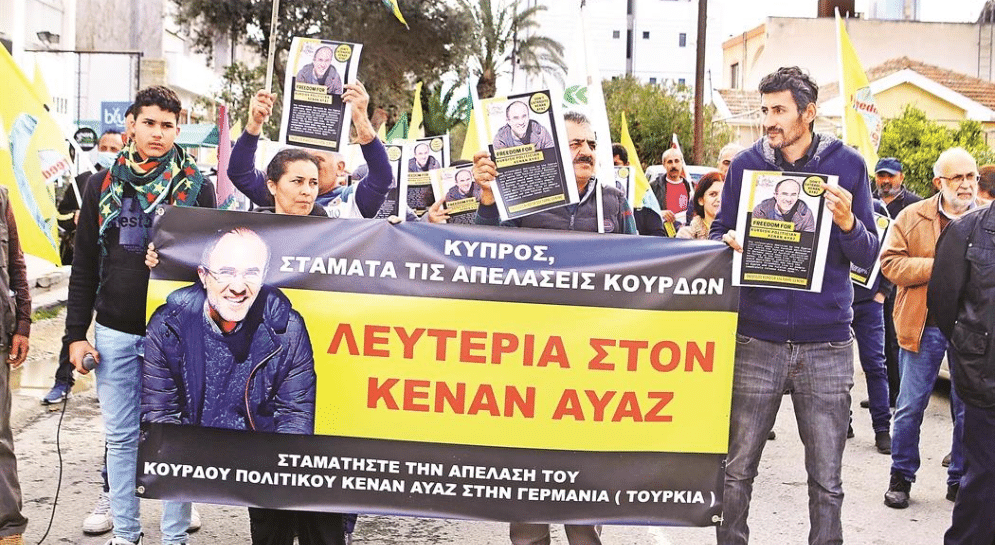The trial of Kenan Ayaz will resume at Hamburg’s higher regional court in Germany on Tuesday, where he faces charges related to his membership of the Kurdish Workers’ Party (PKK), deemed to be a terrorist organisation under German law.
During Friday’s hearing, Ayaz had a huge show of support, while Akel MP Giorgos Koukouma also flew out to attend the trial.
Ayaz’s defence rejected the terrorism charges, saying this was a political trial, citing the fact that German prosecutors took two years to issue a European arrest warrant against him as an indication.
The defence also argued the timing of the arrest warrant came shortly before the Nato Madrid Summit in June last year.
According to the defence lawyers, during this summit Sweden’s and Finland’s accession to Nato was discussed and Turkish President Tayyip Erdogan “publicly pressured Nato states to criminalise the Kurdish movement and extradite politically active Kurds and alleged PKK members to Turkey”.
In his own statements during the hearing, Ayaz addressed international law violations by Turkey under Erdogan, the military actions against the Kurdish movement in Rojava and Northern Iraq and against the Kurds in Turkey.
He argued that the Kurdish people’s struggle is a struggle for survival against this kind of violence and persecution by Turkey. He also denounced the ongoing Turkish occupation of Cyprus and said that the same Turkish nationalist ideology that led to the occupation of Cyprus is fuelling the struggle against the Kurds.
An issue also emerged with Ayaz’s translator, with Ayaz saying he could not understand what was happening during the opening of the trial “because of the poor Turkish interpretation provided by the court during that first hearing”.
The issue was dismissed and the trial will resume on Tuesday at 9:30am.
Ayaz was imprisoned in Turkey for 11 years in 1993, before being acquitted. He was later indicted in Turkey in 2010, before coming to Cyprus and being granted refugee status.
He was then arrested in Cyprus in March following the issuance of a European arrest warrant by Germany.







Click here to change your cookie preferences